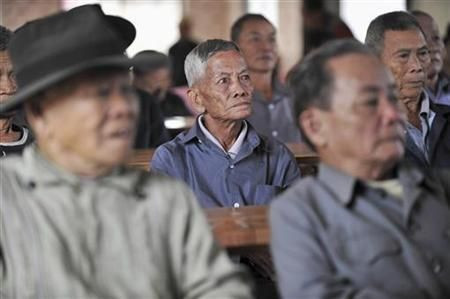Elderly Care In China: International Retirement Home Companies Eye Ageing China Market

Will China’s old tradition of filial piety soon see a drastic shift? While many reports of China’s neglected elderly are already indicating that modern Chinese are straying from the traditional values of giving back to one's elders, retirement home operators overseas are hoping to make a profit off of China’s shift.
In most traditional Chinese homes, having three generations under one roof is not uncommon. This filial piety tradition often includes having grandparents live with their adult children during their old age. But the situation is often mutually beneficial: It also helps parents have an extra set of eyes on their young children. However, that may soon change.
According to a report by the South China Morning Post, multiple international retirement home operators have shown great interest in the China market, specifically eyeing the nation’s elderly, expected to represent 34 percent of the country’s total population by 2050. The government has also expressed keen interest in using private, international capital to help improve elderly care in the country. The central government recently released new guidelines to approach elderly care; those are still quite vague but do highlight the possibility of local governments engaging in deals with private companies.
Some companies are ahead of the curve, already establishing their senior housing projects. “We were particularly happy to see the State Council saying they plan to allocate land for senior care,” Cole Wright, the managing director of Merrill Gardens, a Seattle-based retirement community company, said in the report. Merrill Gardens has its first joint-venture elderly housing community slated to open by next year.
Unfortunately, as China’s real estate remains hot, land that has been specifically allocated for senior-care has been bundled for sale with regular residential developments in order to sell to developers faster. Wright says some developers still aren’t totally sold on the profitability of senior-only housing facilities.
Still, Merrill Gardens had decided to make the investment in senior facilities, hoping to make money before competition rolls in. “Merrill Gardens has chosen to enter China relatively early because we believe it takes time to truly understand this market,” Wright added. One thing the company does know is that it is targeting China’s increasingly wealthy middle class, charging anywhere from 6,000 yuan ($980) to 12,000 yuan ($1,960) a month for services that include housekeeping, nurse care and meals. “We believe we have the right model and have several projects in development that will not take long to reach profitability.”
© Copyright IBTimes 2024. All rights reserved.






















